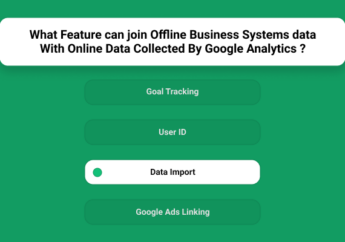The Future of Software Development: How Startups Can Stay Ahead of the Curve
by Shahnawaz Alam Information Technology Published on: 21 June 2024 Last Updated on: 24 June 2024

Startups in today’s fast paced tech world have the unique advantage of continuous innovation and agility. However, they can maintain that character only by staying ahead of the curve in software development. This includes a keen understanding of emerging trends, a willingness to adapt, and strategic investments in technology and talent.With this article let’s underestand Future of Software Development: Explore emerging trends like AI, low-code, and cybersecurity shaping the path of software creation.
Below, we dive into different strategies that startups can employ to stay on top of software development trends and thrive. Read on to explore the future of software development, its impact on business, and the top strategies to maintain adaptability.
Upcoming Trends in Software Development

There have been rapid advancements and massive changes in software development over the past years. According to Gartner reports, 91% of businesses – big and small – have launched digital transformation initiatives within this period. The report highlights how 87% of senior business leaders prioritize digitalization, adopting a digital-first business strategy.
More and more companies are therefore constantly looking for skilled professionals in computer science and software engineering. Baylor University offers an online computer science degree that acts as a gateway to a fulfilling career in this ever evolving industry. Due to the smaller class sizes, students receive more personalized attention from the faculty, and benefit from the latest curricula that address the rising trends in software development.
While predicting the future of software development in the next decade is an almost impossible task, we can safely forecast a year or two from now. Here is a look at the top upcoming trends in software development that will have a significant impact on the IT industry.
Low-code/no-code Platforms
Low-code and no-code platforms are seeing a rise in popularity across the IT sector. They allow users with little to no programming knowledge to build functional software. They leverage intuitive visual elements to ensure that the user can design and deploy software with ease.
For startups, this could mean a unique opportunity to reduce costs, accelerate development cycles and foster greater innovation. Businesses can launch products much faster and reduce the substantial costs associated with smaller development teams. It also ensures that non-technical staff can contribute toward the development process, enhancing collaboration across the startup.
Serverless Computing
Another game changer in the software development field has to be serverless computing. It allows developers to not only build but also run applications without needing to manage infrastructure. Netflix, for instance, can scale its resources to meet the demands of users because Lambda takes care of tasks such as user authentication and backend processes.
Serverless computing is particularly attractive for startups because it offers scalability and reduced operational complexity. Businesses can automatically scale up or down – depending on their application’s demand – without manual intervention. This enables startups to focus more on providing their users with innovative features and improved user experiences.
Artificial Intelligence (AI) and Machine Learning (ML)
The recent uptick in the adoption of AI and ML across various industries cannot be ignored. These technologies are used on a global scale to enable data-driven decision making and personalized user experiences. Equally, software development companies rely on AI and ML to build predictive analytics algorithms.
Startups leverage AI and ML to analyze large amounts of data in record time. They can therefore get actionable insights to aid in making more informed decisions. Equally, startups can use AI and ML to automate certain tasks, which helps free up human resources to focus on higher value activities.
DevSecOps
DevSecOps (Development, Security and Operations) is quickly gaining traction in the software development field. More and more companies are looking to DevSecOps as a permanent solution to security as it focuses on built-in security. It prioritizes early detection rather than building security measures around pre-existing apps and data.
Startups benefit from DevSecOps as they can fix any potential risks or vulnerabilities before they transform into critical issues. Equally, businesses get to continuously monitor and assess security risks, ensuring that their applications remain secure at all times. Doing this helps businesses across various industries to meet regulatory requirements and maintain customer trust.
Tips to Stay Adaptable

How can startups stay ahead of the curve in software development? Here are several steps that startups can take to keep up with the constantly changing and evolving world of software development:
Continuous Training and Innovation
To begin with, startups must offer regular training and encourage experimentation. Doing this allows them to stay up to date, which is critical in software development. Startups should therefore provide in-house training, seminars, workshops and online courses to enhance employee skills. By fostering a culture of learning, the startup can leverage the latest technologies to drive its business forward.
Invest in Talent
Startups can stay competitive by attracting and retaining top talent. They must offer competitive compensation to attract high quality candidates. It will also help to provide career development opportunities to ensure that the top talent sees potential for growth and development.
Adopt Proactive Cybersecurity Measures
Cybersecurity is critical due to the ever increasing reliance on digital solutions. It is therefore paramount for startups to implement anticipatory measures such as employee training, penetration testing and vulnerability assessments. Doing this helps them adapt security protocols accordingly, thus protecting their clients and safeguarding the company’s reputation.
Strategic Partnerships and Integration
Finally, startups must collaborate with technology providers within their industry to ensure seamless integration. Creating these partnerships helps them gain access to advanced support and tools, enhancing efficiency and accelerating the development process. It also encourages a culture of continuous learning within the startup, ensuring that they stay updated on the latest trends, technologies and best practices.
The Bottom Line
Trends in software development change just as fast as technologies do. What is relevant today might be obsolete in the years to come. Therefore, startups must adopt a proactive approach to position themselves for sustained growth and success. The key is to foster a work culture that can quickly respond to the demands of the market by micro pivoting its processes and strategies.
Read More:



































































































